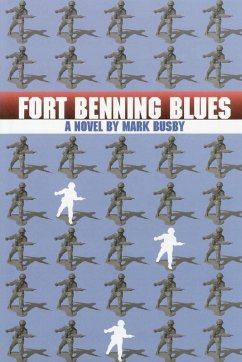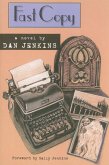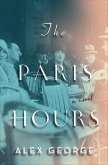If you've never even been to Southeast Asia, can you be a Vietnam veteran? In a novel that captures the life and times of a generation, Mark Busby takes us on a journey through an era of hippies, the shootings at Kent State University, integration, and Woodstock. Fort Benning Blues tells the story of Vietnam from this side of the ocean.
Drafted in 1969, Jeff Adams faces a war he doesn't understand. While trying to delay the inevitable tour of duty in Vietnam, Adams attends Officer Candidate School in Fort Benning, Georgia, desperately hoping Nixon will achieve peace with honor before he graduates. The Army's job is to weed out the duds, turkeys, and dummies in an effort to keep not only the officers but also the men under their command alive in the rice paddies of Vietnam. It doesn't take long for the stress to create casualties.
Lieutenant Rancek, Adams' training officer at OCS, is ready to cut candidates from the program for any perceived weakness. He does this, not for the Army, but because he wants only the best . . . leading the platoon on my right when he goes to Vietnam.
Hugh Budwell, one of Adams' roommates, brings the laid-back spirit of California with him to Fort Benning. Tired of practicing estate law, he joins the Army to relieve the boredom he feels pervades his life. About Officer Candidate School, Budwell states, If I wanted to go through it without any trouble, I'd be wondering about myself.
Candidate Patrick Sheriff Garrett, a black southerner, spends a night with Adams in the low-crawl pit after they both raise Rancek's ire. Expecting racism when he joined the Army, Garrett copes better than most with the rigors of Officer Candidate School.
Busby uses song lyrics, newspaper headlines, and the jargon of the era to bring the sixties and seventies alive again. Henry Kissinger is described as Peter Sellers as Dr. Strangelove and Lieutenant William Rusty Calley as Howdy Doody in uniform. Of My Lai, Busby says, At Fort Benning everybody took those actions as a matter of course.
As America continues to try to comprehend the effects of one of the most transforming eras in our history, Fort Benning Blues adds another perspective to the meaning of being a Vietnam veteran.
Drafted in 1969, Jeff Adams faces a war he doesn't understand. While trying to delay the inevitable tour of duty in Vietnam, Adams attends Officer Candidate School in Fort Benning, Georgia, desperately hoping Nixon will achieve peace with honor before he graduates. The Army's job is to weed out the duds, turkeys, and dummies in an effort to keep not only the officers but also the men under their command alive in the rice paddies of Vietnam. It doesn't take long for the stress to create casualties.
Lieutenant Rancek, Adams' training officer at OCS, is ready to cut candidates from the program for any perceived weakness. He does this, not for the Army, but because he wants only the best . . . leading the platoon on my right when he goes to Vietnam.
Hugh Budwell, one of Adams' roommates, brings the laid-back spirit of California with him to Fort Benning. Tired of practicing estate law, he joins the Army to relieve the boredom he feels pervades his life. About Officer Candidate School, Budwell states, If I wanted to go through it without any trouble, I'd be wondering about myself.
Candidate Patrick Sheriff Garrett, a black southerner, spends a night with Adams in the low-crawl pit after they both raise Rancek's ire. Expecting racism when he joined the Army, Garrett copes better than most with the rigors of Officer Candidate School.
Busby uses song lyrics, newspaper headlines, and the jargon of the era to bring the sixties and seventies alive again. Henry Kissinger is described as Peter Sellers as Dr. Strangelove and Lieutenant William Rusty Calley as Howdy Doody in uniform. Of My Lai, Busby says, At Fort Benning everybody took those actions as a matter of course.
As America continues to try to comprehend the effects of one of the most transforming eras in our history, Fort Benning Blues adds another perspective to the meaning of being a Vietnam veteran.
Dieser Download kann aus rechtlichen Gründen nur mit Rechnungsadresse in A, D ausgeliefert werden.
Es gelten unsere Allgemeinen Geschäftsbedingungen: www.buecher.de/agb
Impressum
www.buecher.de ist ein Internetauftritt der buecher.de internetstores GmbH
Geschäftsführung: Monica Sawhney | Roland Kölbl | Günter Hilger
Sitz der Gesellschaft: Batheyer Straße 115 - 117, 58099 Hagen
Postanschrift: Bürgermeister-Wegele-Str. 12, 86167 Augsburg
Amtsgericht Hagen HRB 13257
Steuernummer: 321/5800/1497
USt-IdNr: DE450055826
Bitte wählen Sie Ihr Anliegen aus.
Rechnungen
Retourenschein anfordern
Bestellstatus
Storno









